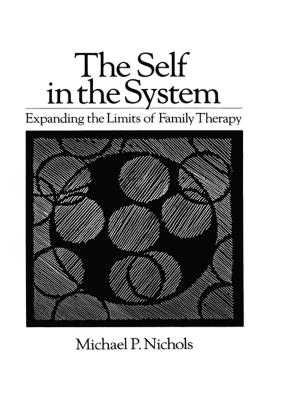The Language of Distress
Understanding a Child's Behaviour
Nonfiction, Health & Well Being, Psychology, Mental Health| Author: | A.H. Brafman | ISBN: | 9780429921223 |
| Publisher: | Taylor and Francis | Publication: | March 29, 2018 |
| Imprint: | Routledge | Language: | English |
| Author: | A.H. Brafman |
| ISBN: | 9780429921223 |
| Publisher: | Taylor and Francis |
| Publication: | March 29, 2018 |
| Imprint: | Routledge |
| Language: | English |
This book describes a series of cases where the child’s presenting complaint is seen to be the expression of an underlying emotional conflict that the child expects the parents to understand and help him or her to overcome. The parents’ interpretation of the child’s symptoms cannot but be influenced by their own previous life experiences and if their eventual response does not meet the child’s anxiety, the child feels misunderstood and the physical complaint remains unchanged. When seeing child and parents in a consultation, an attempt is made to discover the unconscious fantasy that underlies the presenting physical complaint, and also to investigate what led the parents to approach their child in the particular manner that, in practice, perpetuated the symptom. The proposal is put forward that the symptom can be seen as a language, a manner of expressing an underlying emotional anxiety. Once the therapist formulates this message in words the child can understand, and helps the parents to understand their response to the child, it becomes possible for the parents to approach the child in a more effective manner – and the symptom disappears.
This book describes a series of cases where the child’s presenting complaint is seen to be the expression of an underlying emotional conflict that the child expects the parents to understand and help him or her to overcome. The parents’ interpretation of the child’s symptoms cannot but be influenced by their own previous life experiences and if their eventual response does not meet the child’s anxiety, the child feels misunderstood and the physical complaint remains unchanged. When seeing child and parents in a consultation, an attempt is made to discover the unconscious fantasy that underlies the presenting physical complaint, and also to investigate what led the parents to approach their child in the particular manner that, in practice, perpetuated the symptom. The proposal is put forward that the symptom can be seen as a language, a manner of expressing an underlying emotional anxiety. Once the therapist formulates this message in words the child can understand, and helps the parents to understand their response to the child, it becomes possible for the parents to approach the child in a more effective manner – and the symptom disappears.















